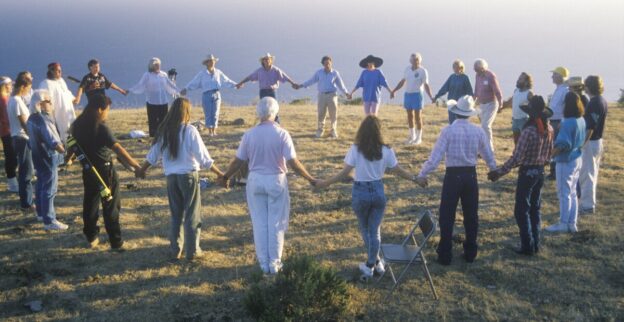Divorce rates for the general public are at their lowest since the swinging 70s, but U.S. census figures show the divorce rate among those over 65 has doubled since 1980; it grew to eight per cent in 2004 from 6.7 per cent in 2000. In Japan, a popular television drama Jukunen Rikon (mature divorce) featured a woman who dumps her husband after he retires. Not to make light of this, but does the joke ‘for better and for worse but not for lunch’ ring a bell?
A family story: A 50-something couple drive their youngest child to college and after the last box is unloaded and the final embrace concluded, they are back in the car about to pull away. The husband turns to his wife of 26 years and says, “Allow me to introduce myself …”
Here are some thoughts on why mature relationships are so vulnerable and a few simple ideas about how not to become a statistic of failure yourself.
You don’t have to be a psychologist to know that relationships are formed in the daily details and patterns of life together, going to work, raising children, keeping your lawn mowed and your dog curbed. Most of us 50 or better came of age, so to speak, in the era of the two-career family. This means that we were apart from our life partner for long periods of every day, and many of us liked it that way. Even if you would have preferred it otherwise, it was real life, and the longer we did it, the realer and more ingrained our patterns of relating.
Change, like more face time in the case of the Japanese wives whose spouses they have dubbed “wet leaves” for their tendency to cling, or a sudden emptying of the nest — can rock the very foundations. It happens in the best of families. How few family gatherings, including happy occasions like weddings or vacations, are models of harmony. I mean, who are these people? And, more to the point, who am I in the relationship?
Maybe we could all use some relationship training, starting say, in the elementary grades. Don’t hold your breath. In the meantime, here are a few things to try when you find yourself suddenly together again, for the first time.
Pretend you are just getting to know each other, and offer the interest, respect and good humor you’d give to a stranger you hope will become a friend.
Give each other space: OK, it’s a cliche, but we all need time alone, to think, reflect, just be, or be elsewhere. Even the most loving, committed partnerships can feel stifled by togetherness 24/7. If one of you traveled on business frequently or for long periods, the other got used to it, filled the time, and the reunion was all the sweeter, right? Make room for that.
Develop your listening skills. Listening is a good daily habit to cultivate and a true survival skill when things get heated. When we are immersed in careers, we become adept at listening selectively for information relevant to our work or the tasks at hand. This may even be a survival skill in our media-saturated world. But our intimate relationships call for more generous, attentive listening. We are all born communicators but listening has to be learned.
Set time aside to talk regularly about what matters: finances, family obligations, quality of life, how you could make each other happier. Let each takes a turn to speak while the other just listens, without comment. Next, the listener might “mirror” back what s/he heard. This focuses the mind wonderfully and can calm things down during conflicts or when there is a difficult decision ahead. Borrowed from a great tool: Conscious Loving: The Journey to Co-Commitment, Gay and Kathlyn Hendricks, Bantam Books, 1992.
Learn to accept change and go with the flow. At an Indian restaurant on New York’s Upper Westside, there is an ornate box by the entrance containing strips of paper, each printed with a message. Here’s the one: “Accept that which is coming in; let go of that which is going out. Want nothing. Embrace everything.”
Leave precedents for a court of law, especially those that start ‘you always …’ or “I never …” Here’s a practice: switch your domestic responsibilities for a few days, without judgment of the results.
Try something new together: dancing, photography, films. Plan a surprise for you both once a week or month. Become tourists in your own hometown for a day. Critique a movie or restaurant for each other. Create a time capsule of your favorite memories. Create a private joke collection.
All good, all the time: Speak only for yourself. Show your affection. Keep your conflicts private. Keep your word. Resolve your issues – or make a date to do so – before you hit the sheets. Give your relationship equal time. Slow down, savor and celebrate your moments together. Do lunch.

